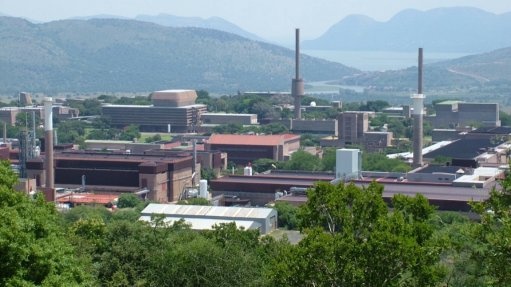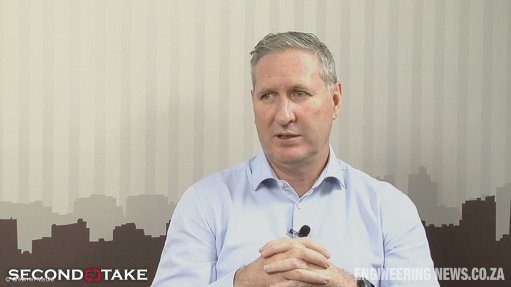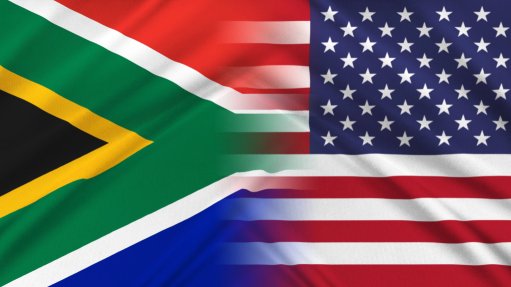The Impact of Digitalisation and IoT on the African Energy Sector
This article has been supplied.
Leading figures within the African energy space will assemble at the Africa Energy Indaba to discuss the significance of digitalisation and IoT at a time when the energy sector is experiencing a major transition.
The upcoming Africa Energy Indaba will host various forums on digitalisation and its implication on the continent’s energy space. Well-versed industry leaders will impart their knowledge on developing opportunities and how to manage challenges while proactively exploring strategies to fortify their competitive advantage.
Panel discussions focused on this theme have been devised to educate and encourage attendees to investigate the application of digitalisation along with why a nation should embrace this revolutionary technology.
Digitalisation within the African energy sector is accelerating at a rapid pace, creating a demand for innovation adaptation to new market technologies and the development of new skill sets within businesses. By 2026, $300 billion could be added to the continent’s economy if countries decide to adopt digitalisation.
However, emphasis should be placed on an African approach in order to implement disruptive technologies in an appropriate way. It’s essential that aspects specific to the African continent be well-defined within its unique context prior to developing and executing a relevant digital strategy. “There are so many areas that digital opportunities can enable and influence.
It remains critical that energy leaders map out digital opportunities, determine the priority areas in their countries’ own context and how to develop talent to leverage those opportunities,” explained Dr Christoph Frei, Secretary General of the World Energy Council.
The digital realm represents both an opportunity and a challenge to the African energy sector. Digitalisation contributes to job creation and opportunities. Advancements, such as renewables, clean coal and nuclear, energy storage, off-grid technologies and smart grids make allowance for new investment and development opportunities.
Furthermore, it has the capacity to upskill workers, improve capital productivity and labour efficiency as well as bring about better energy security, accessibility and affordability, thereby promoting economic and societal benefits. Moreover, digitalisation can equip Africa with a multitude of innovative solutions for its people. In addition, it has the capacity to collect data used to gain insights to further boost efficiency and productivity.
According to Dr Frei, “Digital solutions help energy systems to be more effective in different ways:
They assist in managing the intermittence issues of renewables;
They support predictive supply chain management, thereby minimising the number of blackouts from technical reasons;
They’re a method of sharing data. For instance, enabling rural entrepreneurs to monitor technology, thereby empowering them; and,
They enable systems through blockchain.”
Conversely, this new-wave revolution also brings with it a host of risks and challenges amongst which is the preparedness of Africa in embracing digitalisation as the continent will be exposed to increasing threats related to data security and ownership, server locations and cybersecurity.
Another barrier to adoption that Africa faces is connectivity. IoT requires efficient internet connections, creating a need for available resources such as network capacity and bandwidth. It remains essential to evaluate the digital infrastructure, technology and skills involved to connect devices and to analyse the data obtained.
In addition, training and skills development in order to retain and create jobs as the energy transition unfolds is imperative.
Digitalisation and the declining costs of associated new technologies are driving factors of the major transformations transpiring in the energy space. Policy-makers in the African energy sector need to take the implications of these changes into account for their national energy security and energy systems planning.
Leading figures within the African energy space will convene at the 11th annual Africa Energy Indaba to discuss the magnitude of digitalisation at a time when the energy sector is undergoing a major transition.
Dialogues will focus on African energy sector innovations investigating near and long-term prospects for technological advancements such as blockchain, where decentralisation and digitalisation play a more pronounced role within the continent.
Comments
Press Office
Announcements
What's On
Subscribe to improve your user experience...
Option 1 (equivalent of R125 a month):
Receive a weekly copy of Creamer Media's Engineering News & Mining Weekly magazine
(print copy for those in South Africa and e-magazine for those outside of South Africa)
Receive daily email newsletters
Access to full search results
Access archive of magazine back copies
Access to Projects in Progress
Access to ONE Research Report of your choice in PDF format
Option 2 (equivalent of R375 a month):
All benefits from Option 1
PLUS
Access to Creamer Media's Research Channel Africa for ALL Research Reports, in PDF format, on various industrial and mining sectors
including Electricity; Water; Energy Transition; Hydrogen; Roads, Rail and Ports; Coal; Gold; Platinum; Battery Metals; etc.
Already a subscriber?
Forgotten your password?
Receive weekly copy of Creamer Media's Engineering News & Mining Weekly magazine (print copy for those in South Africa and e-magazine for those outside of South Africa)
➕
Recieve daily email newsletters
➕
Access to full search results
➕
Access archive of magazine back copies
➕
Access to Projects in Progress
➕
Access to ONE Research Report of your choice in PDF format
RESEARCH CHANNEL AFRICA
R4500 (equivalent of R375 a month)
SUBSCRIBEAll benefits from Option 1
➕
Access to Creamer Media's Research Channel Africa for ALL Research Reports on various industrial and mining sectors, in PDF format, including on:
Electricity
➕
Water
➕
Energy Transition
➕
Hydrogen
➕
Roads, Rail and Ports
➕
Coal
➕
Gold
➕
Platinum
➕
Battery Metals
➕
etc.
Receive all benefits from Option 1 or Option 2 delivered to numerous people at your company
➕
Multiple User names and Passwords for simultaneous log-ins
➕
Intranet integration access to all in your organisation

















